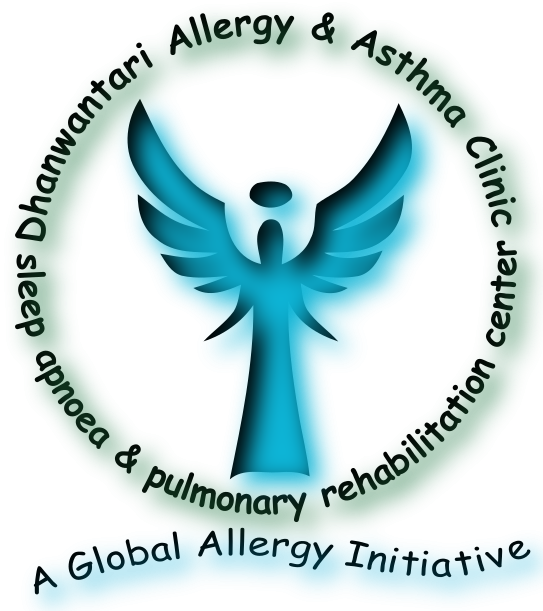Managing severe cases of asthma, allergies, and chronic obstructive pulmonary disease (COPD) can be challenging with standard treatments. In recent years, biological therapies have emerged as a cutting-edge solution for patients with difficult-to-control conditions. In this post, we’ll explore what biologicals are, the different types available, their costs, indications, patient selection criteria, and the cost-benefit analysis for those considering these treatments.
What Are Biologicals?
Biologicals, or biologic therapies, are advanced medications derived from living organisms. Unlike traditional drugs, which are chemically synthesized, biologicals are large, complex molecules like proteins or monoclonal antibodies designed to target specific components of the immune system. In the context of asthma, allergy, and COPD, these drugs often inhibit inflammatory pathways that drive symptoms and disease progression.
Types of Biologicals in Asthma, Allergy, and COPD
Several biological therapies have been approved for the treatment of severe allergic asthma and COPD. The most commonly used biologicals include:
1. Omalizumab (Xolair): Targets IgE, the antibody involved in allergic responses. It is used for severe allergic asthma and chronic spontaneous urticaria.
2. Mepolizumab (Nucala): Targets IL-5, a cytokine that promotes the survival of eosinophils, which are involved in asthma and certain allergic conditions.
3. Benralizumab (Fasenra): Targets the IL-5 receptor, leading to the depletion of eosinophils, and is used in eosinophilic asthma.
4. Dupilumab (Dupixent): Blocks IL-4 and IL-13, which are key cytokines in allergic inflammation. It is used in asthma, atopic dermatitis, and nasal polyps.
5. Reslizumab (Cinqair): Also targets IL-5 and is administered via intravenous infusion for eosinophilic asthma.Approximate Cost of Biologicals in India
Biological therapies are relatively expensive compared to standard treatments, and costs vary depending on the drug and the frequency of administration. Here’s a breakdown of the approximate costs:
• Omalizumab (Xolair): ₹18,000 to ₹25,000 per dose, administered every 2-4 weeks.
• Mepolizumab (Nucala): ₹40,000 to ₹45,000 per dose, administered every 4 weeks.
• Benralizumab (Fasenra): ₹25,000 to ₹35,000 per dose, with a maintenance dose every 8 weeks.
• Dupilumab (Dupixent): ₹35,000 to ₹40,000 per dose, administered every 2 weeks.
• Reslizumab (Cinqair): ₹30,000 to ₹40,000 per intravenous infusion, administered every 4 weeks.These costs can add up quickly over the course of treatment, making it important for patients to consider their insurance coverage and long-term affordability.
Indications for Biological Therapy
Biologicals are not first-line treatments; they are reserved for patients with severe asthma or COPD who do not respond well to standard therapies such as inhaled corticosteroids and bronchodilators. Specific indications include:
• Severe allergic asthma (IgE-mediated) that is poorly controlled with high doses of inhaled corticosteroids.
• Severe eosinophilic asthma, where eosinophils (a type of white blood cell) drive the disease.
• Chronic spontaneous urticaria and atopic dermatitis for patients who have failed conventional treatments.
• Nasal polyps associated with chronic rhinosinusitis.Patient Selection for Biological Therapy
Selecting the right patients for biological therapy is crucial for achieving the best outcomes. Criteria include:
• Phenotyping: Patients are categorized based on their asthma type (e.g., allergic vs. eosinophilic) or COPD severity.
• Biomarkers: Blood eosinophil counts, total IgE levels, and exhaled nitric oxide levels are often measured to determine eligibility.
• Previous Exacerbations: Frequent hospital visits, steroid use, or exacerbations despite optimal therapy are indicators that biological therapy might be needed.Cost-Benefit Analysis of Biologicals
While biologicals are expensive, they offer significant benefits for the right patients:
• Reduced Exacerbations: Patients on biological therapy experience fewer asthma or COPD exacerbations, leading to reduced hospital visits and emergency interventions.
• Corticosteroid-Sparing: Many biologicals reduce the need for long-term oral corticosteroids, lowering the risk of corticosteroid-related side effects such as weight gain, diabetes, and osteoporosis.
• Improved Quality of Life: Patients report better asthma control, fewer symptoms, and an overall improvement in daily functioning.However, the high cost of these treatments may not be justifiable for all patients, particularly those who can manage their symptoms with less expensive therapies. Additionally, biological therapies require long-term administration, often lasting months or even years, which can increase the financial burden.
Public Awareness: When to Consider Biologicals
Biologicals are a major advancement in the treatment of severe asthma, allergies, and COPD, but they are not for everyone. If you or a loved one has severe asthma or COPD that remains uncontrolled despite maximum conventional therapy, it may be time to speak with your allergist or pulmonologist about biological options. These therapies can significantly reduce symptoms and improve quality of life when used in the appropriate patient population.
However, due to their cost and the need for long-term treatment, careful consideration and consultation with your healthcare provider are necessary to determine if biological therapy is the right choice for you.
For more information on asthma, COPD, and allergy management, visit our clinic or explore our resources on www.Allergy-Asthma-Clinic.com
If you need further details or wish to consult about these therapies, feel free to contact us at info@DrJha.in or +91-844-845-55-45











